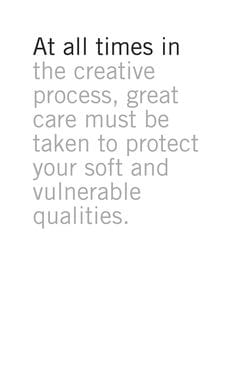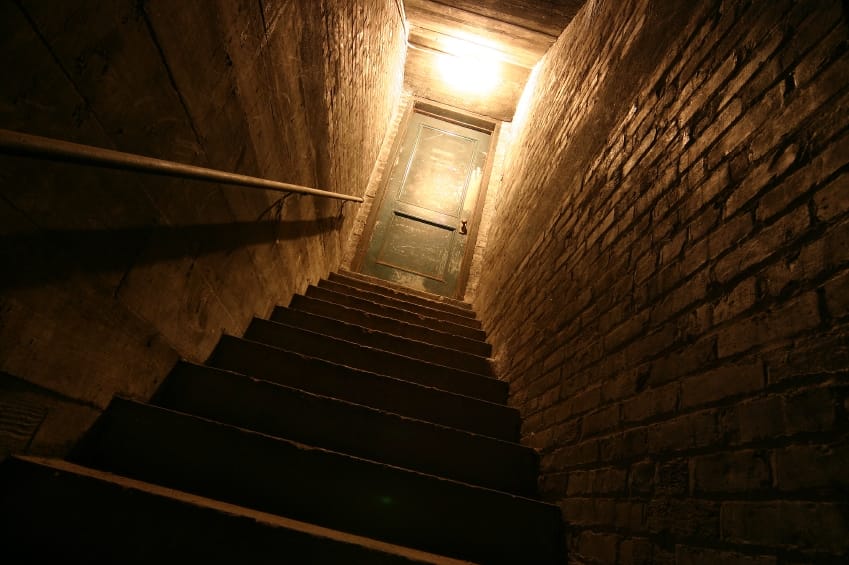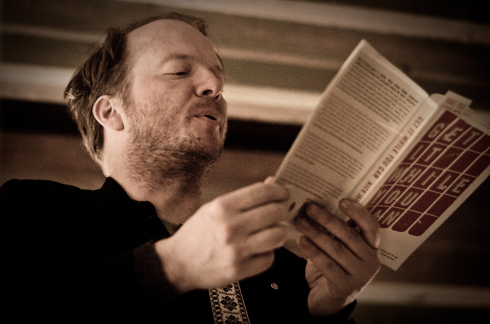|
What a year. I'm going on holiday. Things I want to find on this trip: reflection open eyes relaxed skin, face, eyelids, cheeks softness to the spot below my lips, above my chin an ending for my play energy family connection inspiration hope lists of accomplishments, misses and successes from the year goals for next year spaciousness my rib cage opening ideas and desire to execute dreams warmer weather wetter weather other people's stories new experiences rain sun ocean peace sleep hugs kisses my mom's oysters currant tarts generosity long deep conversations lots of laughter singing stretching out on a couch drifting off into sky a strange new dance sleep naps a computer staying in a bag most of the day sleep As most (sane) creative people know, this departure is an important part of the process. I'm grateful I get to go away -- to my circumstances and privilege, but also to myself and my partner for putting this time in our calendars months ago. Michael Atavar in How To Be An Artist says artists should mark out all their vacations at the beginning of the year and stick to them. I don't know how I can plan that far out, but it's something to think about. Atavar also suggests looking back and celebrating what has been done after every project. So I'll take some of time to reflect, and as I learned from Christian Frock's "Artist in the World" class last year, list my accomplishments completed, big wins, losses, connections made and new questions I'm investigating as an artist. I'll take some time to list personal goals, as well as professional and creative ones, and pin three that I definitely want to accomplish next year, and over the next two years. I want to come back rejuvenated and ready for 2017. I want to come back longing to work and create and dig my head down and flourish. For that to happen, I must step back.
One thing I'll back away from is social media. I might check in every now and then, but in general I'll be fasting from my Facebook, Twitter and tumblr accounts. Reach out to me on email if you need me. I'll also take a break from this process blog next week. There may be changes coming to how and what and when I post next year, based on discoveries made during this break, and what I think will help me stay creatively energized through the new year. And with all that, a joyous holiday and new year to you all. May you find kindness, love, and generosity, and be able to give these in return. Be well and take care.
0 Comments
I believe every new play, every writing project, emerges in its own way. Just because the last play I wrote worked ABC, the next one could work XYZ, 123 or #&@. The one I'm working on right now stymies me. I'm used to having some idea of what happens next scene-by-scene. Usually I'm an avid outliner, or create a synopsis that works like a map.
This time, I started typing Scene One knowing the beginning image, where the main character might end up, and an extremely loose premise. More like a blurb, really. I didn't do a ton of character development beforehand. I did minimal research. I tried, but whenever I started, I got bored enough that plunging into page one seemed a better start. A January deadline when I had nothing typed out in early December was an influencing factor, I admit. Now, each scene I write, I'm not sure what's going to happen next. I'm following a little thread Stephen King sometimes talks about that leads me further into the basement of discovery. I'm getting toward the end and I keep getting surprised. I hope this works well for the play, but even if not, it's interesting to submit to a new way of doing things. Where did this new way originate? Maybe my Natalie Goldberg inspired daily writing practice is affecting my dramatic writing process. Maybe I'm easing up on the control I've always taken when plotting out scripts -- which is different from the more organic way I write poems, stories, and essays. Maybe I'm learning from my experimenting students (the fourth graders, high schoolers, the 60+ year olds who have never written a play). I feel the dramatist's rules I learned early on clogged up my creative brain for a time. When I started my first playwriting class, I had no idea what I was doing. I regularly feel I don't know what I'm doing even still -- whether I'm creating a scene or having an everyday conversation with somebody. With that not knowing, I leaned hard into learning all the rules, to the work's benefit and detriment. Perhaps now I'm giving up fear of the unknown. I'm having fun with that. Not knowing is okay. I recently reread Stephen King's On Writing. This time I paid more attention to his metaphor of the writing process as archaological dig. Paying attention to each moment, word by word, following the images that unfold like a brush sweeping dust away to reveal an ancient artifact. There's something improvisational about that way of writing. Like the physical improvisation I practice in Viewpoings training, this writing isn't so much about what I'm creating. It's about what I'm finding. Every day, I'm working on letting go, in all areas of my life. The writing and art as much as every day's tension, fear and insecurities. I'm curious what you think about this, and about what your process is now, for whatever you're making. Love for who needs it. I think this time right now, no matter what you believe and think and feel, is difficult and complicated. It can be hard in big and small ways whether we’re looking at national news, global news, or considering the holidays and end of year stressors for students, teachers, working professionals. We’re getting into winter and that can be an even harder time to be homeless or feel alone, or even get the car started or get on a bicycle. It can be a good time too – and I hope it is for you right now. This was a tough week for me. I needed some healing love, and let that guide my Free Drop-In Writing Workshop at The Cabin this month. I feel that when hard times hit or approach, acting with love in any of its forms can be an amazing remedy. We read some wonderful love letters by Nick Jaina, from his beautiful book Get It While You Can, and used those as inspiration to write our own love letters to someone needing one – in any form or genre we like. Nick is a musician, songwriter, composer and a writer in many different forms. His book is made up of love letters he never sent, the story of what happened to him when his guitar was stolen and he went on a ten day silent meditation, stories on the road, and intoxicating how-to-manuals. Here's the letter we read aloud and discussed (with a few others passed around in a packet): From Get It While You Can By Nick Jaina Dear ____________, Do you know about quantum entanglement? It’s when two particles interact in such a special way that even if you separate them, their movements will continue to affect one another. You could be in Los Angeles with one of these particles and I could be in New York, and if your particle spins a certain way, my particle will spin that way, too. This connection happens instantaneously, which is to say that it’s faster than the speed of light. This is such a remarkable scientific fact that I can’t understand why everyone isn’t talking about it every day. This is more important than health care or algebra or the housing market. You could say that our desire to bridge distance is what is killing us. More and more, we want to get places faster and we are burning ourselves up to make that happen. It doesn’t make any sense. If we are already connected to everything, we can stay right where we are. There are cords around your heart connecting you to different emotions and places and people. You can’t see them physically, but that doesn’t matter. When you love something, your heart ties itself around it, like it’s tying a string around something it doesn’t want to forget. There is a cord that runs from my heart to yours, for example, and it goes right through the center of the earth. It is a long, stretchy cord. Sometimes it has slack in it and I can’t feel your pull and I wonder if you’re still there, or if you’ve slipped out of it somehow. Other times it tightens and I can feel every movement and I know what you’re feeling without you even telling me. This cord you’ve passed through your body. It is an interloper and it breaks all the rules about human society, and maybe that’s why nobody wants to talk about it. We don’t ever have to talk about it, but still, I promise you, that cord is there. You don’t even have to wait for the achingly slow currents of light to bring you these messages. They are already there. Yours, presently, Nick We talked about what we noticed, how our bodies, emotions and heads reacted, and what specifics in this piece made our bodies/hearts/heads respond. Then we discussed love letters. What’s important in a love letter? To have an effective love letter, you need: _________. What have you always wanted to see in a love letter but never have? We came up with a few answers. Good love letters should (be): Disclosing something Longing Show displeasure at the sender's absence Honesty, believability, vulnerability Passionate Share a language Direct Then we explored who should be the subject of our letter: Close your eyes. Relax your body, mind. Focus on your breath. Who is the person that needs a love letter from you today? When I ask that question, who do you see? Maybe it’s you. Maybe it’s someone close to you. Someone you love. Someone you don’t like. Maybe it’s someone that’s not human. Maybe it’s not a living being at all, as far as you know. Maybe a few people come up to your mind. Good. That’s great. Maybe one. That’s fantastic. Maybe no one. That’s okay, too. It will come to you. Open your eyes. Write a few notes of the person or people you saw, if you like. …Now I want to give you some time to consider this person (or nonperson). To really give yourself a good sense of who they are and what they need. If you haven’t thought of your person yet, you can use this time to do that. You can walk around the room, leave the room, doodle/take notes at your seat, just sit… As you do, consider who this person (or nonperson) is to you. Your history. How they make you feel. What they make you think about. In a meditative way, let details about them rise up and wash over you. If you don’t know them, consider their situation, their life. And how you might relate. Then we took some notes: Take down some notes about what you felt or saw, what washed over you, ideas that came to mind, no matter how trivial or unrelated they might seem. Even if you can’t possibly see how what you’re writing relates to this person, get it down. We wrote our first letter: This first letter, I invite you to write as more or less a straight letter you might send someone in the mail, whatever that means to you. If you want to jump into a different genre right away you can, but we’ll play with form very soon, and this may help get all the everything out in a more flowing way. Before you write, take a moment to imagine this person again. What they need. What you need. What your love for them feels like, smells like, tastes like, all the senses. What it reminds you of, what it makes you think about. What concrete details and examples might make them laugh or smile or feel warm. Then, without stopping to think, write your love letter to this person in need of love. We took about 15 minutes to write our first letter, and then we rewrote: Now that you’ve written this letter in one giant breath, look it over. Enjoy it, make discoveries, find passages you like. As you read, ask yourself: could this translate into a different form? Can you find poems in this letter? A story, essay, play, song, comic, text and image? Something else? Explore what that might be. Surprise yourself. Our love letters to people can be to ourselves, to someone human or non, who we know or don’t, who we like or love or don’t. They can also take any writing form we choose. See what you can find in yours, and write that. Or maybe you’d prefer to write something new in that new form, to someone else. Or maybe you’d prefer to write a different letter, to the same person or someone new. Write whatever you need right now. Love yourself by writing something you love as a way of loving someone else. We wrote this new version in about 15 minutes, and then shared, discussed. Thanks everyone, for writing! Perhaps, as added risk and act of love, you can decide to give this to the person it’s for. Or maybe, like Nick, you’ll never send it, but do something else with it. Any choice is okay. I set aside this month to draft a new play. As November turned to our twelfth month this week, everything besides that play is tugging at my elbows. Answer this email, get to these extra meetings, do these favors for these people, get into the back and forth scheduling message train, speed ahead to important deadlines and end-of-residency needs, answer cries for help, moderate disputes, fill out this unexpected paperwork, say yes to new projects down the road but they need attention right here and now to discuss possibilities, attend to next steps in next month's play readings, get this all-important submission reading done, figure out how to answer to these other opportunities at my feet, put out this fire...
RIGHT. NOW. This is nothing unusual. These are the normal ins-and-outs of a week of a creative and professional life I love. I'm a fan of everything I've done this week (and am doing, doing, doing...). Yes, the tasks all seemed to avalanche at once at the top of a week that was at the onset devoted to new writing, which makes them all suspect as turncoats. More likely, however, these action items are only 10% more persistant than a typical week's details. The same thing happens to every artist I know (and don't know): a thing must be created, so everything else begs for our attention. That's okay. There is no ideal time. We must make something where we are now. So this for me, for you, for anyone who needs to make something right now, something I'm learning more from yoga classes than writing courses: There is no past, no future. There is only this moment. What do you need right now? What will help you create what you need to make? Time? Space? Quite? Get that. Find that. Endeavor that. Right now. Guard this time. Set aside the space. This day. Or afternoon. Or hour. Or 20 minutes. Or ten. Take care of your art. Take care of your artist. Create what you need to make right now. That email can wait. Call that person back later. Wait to fill out that paperwork. They will be there waiting for you, I promise. Give yourself this moment. Don't even finish reading this entry. Make your thing. Right now. And then thank yourself for it. Give yourself permission. If you need an external signed note, I'm handing you your permission slip right now. You can do this. In gratitude for this arts practice session. Happy Making. |
Like what I'm posting? You can leave me a tip!
$1, $10, $100, whatevs :) Heidi KraayProcess notes on a work in progress (me). This mostly contains raw rough content pulled out of practice notebooks. Occasional posts also invite you into the way I work, with intermittent notes on the hows and whys on the whats I make. Less often you may also find prompts and processes I've brought to workshops, as well as surveys that help me gather material for projects. Similar earlier posts from years ago can be found on: Archives
April 2024
Categories
|




 RSS Feed
RSS Feed